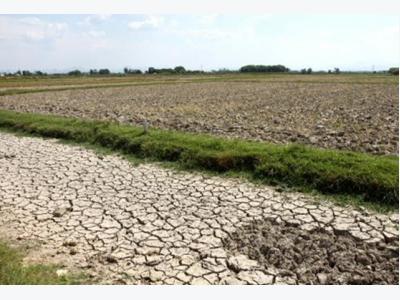Ecosystem-based climate change adaptation reaps fruits

An ecosystem-based climate change adaptation project sponsored by the German Federal Ministry of Environment, Nature Conservation and Building and Nuclear Safety in Vietnam made strides in 2016.
According to Director of Institute of Strategy and Policy on Natural Resources and Environment Nguyen The Chinh, the management board of the project has coordinated with the German International Cooperation Agency and the central coastal provinces of Ha Tinh and Quang Binh to build a training document on ecosystem-based adaptation (EbA)
The project has studied domestic and international funds for EbA, evaluated places vulnerable to climate change, and helped the two Vietnamese localities devise an action plan to cope with climate change from 2016-2020.
Phan Lam Son, a representative from Ha Tinh’s Department of Natural Resources and Environment, said the project piloted the EbA model in Vu Quang district to protect and develop forests in the context of droughts.
Meanwhile, Quang Binh’s Department of Natural Resources and Environment said the project provided technical support for farmers in Quang Trach district to breed cows, grow organic vegetables, and raise freshwater fish.
The steering committee for the implementation of the project sought to enhance officials’ capacity at central and local levels and to mobilise capital to carry out and expand EbA models.
Vietnam is one of the countries most exposed to the adverse impacts of climate change. This problem is estimated to cause the country economic losses of about 15 billion USD each year, equivalent to five percent of its gross domestic product (GDP).
The country is considered a biodiversity hotspot, with a large proportion of its flora and fauna endemic. Climate change threatens this diversity. At the same time, it has been shown that maintaining the stability of ecosystems can contribute to climate adaptation, while enhancing the resilience of those ecosystems and the nearby population.
Besides mitigating the vulnerability of people to climate risks, ecosystem-based measures are seen as a good alternative – or supplement – to technical measures as they provide secondary benefits, including contributions to natural disaster prevention, food security, livelihoods improvement and biodiversity preservation.
Có thể bạn quan tâm
 Scientists evaluate potential of mussels to detect microbial contamination of ambient water
Scientists evaluate potential of mussels to detect microbial contamination of ambient water Microbial contamination in lakes, rivers and oceans can cause illnesses to animals and humans who come in contact with the water.
 The Management of Ammonia Levels in an Aquaculture Environment
The Management of Ammonia Levels in an Aquaculture Environment Aquaculture is the farming and harvesting of aquatic organisms within a controlled environment. The aquaculture sector is now the fastest growing animal food
 Use of Copper in Freshwater Aquaculture and Farm Ponds
Use of Copper in Freshwater Aquaculture and Farm Ponds Copper has been used for many years as a chemical tool in freshwater farm ponds and aquaculture operations. It is both an effective algicide